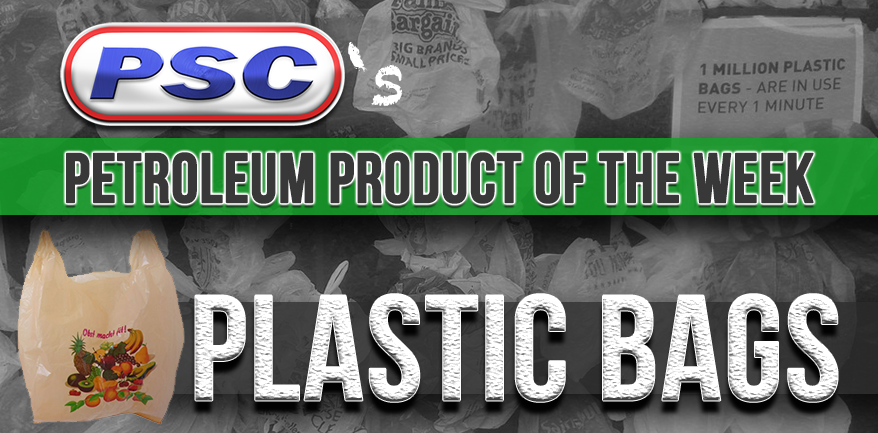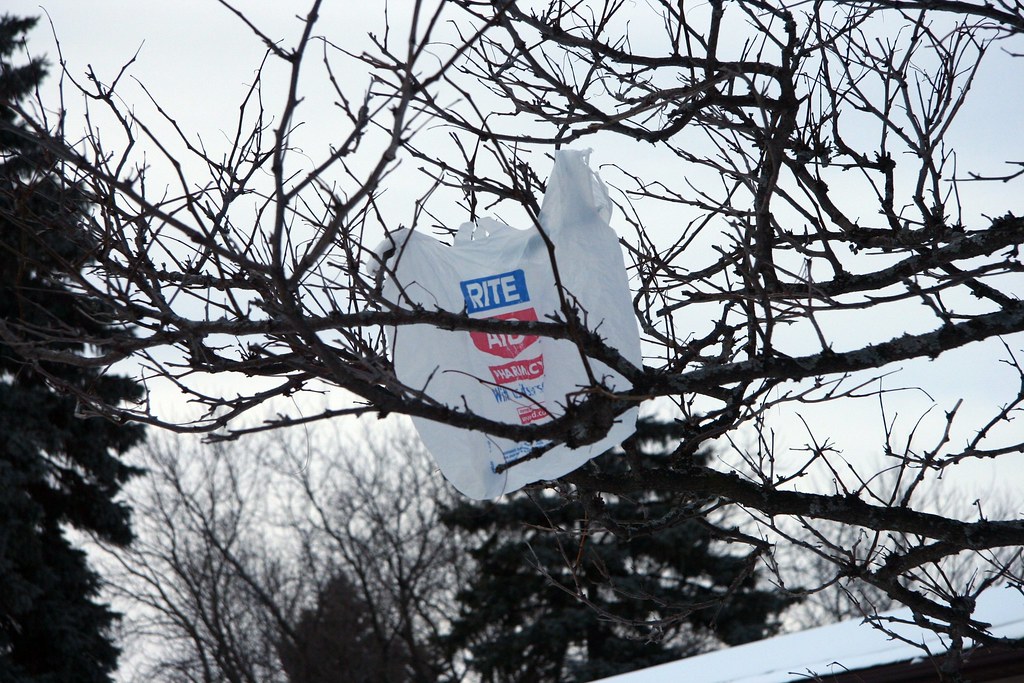Petroleum Product of the Week: Plastic Bags
By on Jul 29 2016

There was once a drawer in your kitchen that served a higher purpose.
It held forks, knives, and spoons or pens, wrenches, and screwdrivers: generally anything small enough to fall within its strict 4-inch height requirement. Now it serves a different purpose; and the inside of this wooden box has become somewhat of a sorry state of affairs.
This drawer holds plastic bags. Nothing else. Just plastic bags. Use one a day, or twenty doesn't matter. It never changes. It's. Just. So. Much. Plastic.

Because of their seeming omnipresence in most American households ( note: plastic grocery bags have been in use since the 1960s), plastic bags don't seem to perplex the human mind enough for anyone to question their origins. Of course, if you've made it this far, you probably know where we're heading.
Some modern plastic bags (sounds like they would have tons of cool features to offer) are made from what are called bio-plastics, which are produced from vegetable-bases. Being readily biodegradable, these bags are the preferable choice, considering most plastic bags if they ever escape from your drawer are simply thrown in the trash.
Still, most plastic bags are made from petroleum bases.

An estimated 12 million barrels of oil are used yearly to manufacture plastic bags in the US alone. That's approximately 504 million gallons of crude oil in other words, a gallon for every individual user in the Twitter-sphere and an extra couple million on top of that. Compared to our yearly consumption of oil, the numbers aren't that extreme; but comparing our yearly consumption of oil to our consumption of virtually any other natural resource is startlingly unbalanced.
According to 1bagatatime.com, the average American disposes of 10 bags per week. Over the course of a year, this amounts to 520 bags, which equates to about 60 miles of driving. They continue:
"Think about how that adds up when you consider that the US has over 300 million people ...petroleum is a precious resource and bags should be too. Plastic deserves better. "
It's true. Moreover, the environment deserves better. Listen, it's not petroleum's fault that it's one of (if not) the most versatile and useful resources on the planet. The idea of plastic bags is brilliant low production cost, theoretically recyclable, and extremely convenient; but they can't be thrown in with your recyclables, are found littered throughout the environment, and do not degrade easily.

The internal systems in place for the reuse and recycling of plastic bags is laughable when compared to the obscenely high production rate.
The sheer amount of plastic that a single, small corner store rips through daily is actually shocking.
What's even more appalling is the common misconception that paper bags are the preferable alternative. According to Reuseit.com, it takes up to four times as much energy to manufacture a single paper bag as opposed to a plastic bag. Finally, even bags made of recycled cloth are far less environmentally-friendly than retailers would like you to believe according to theguardian.com:
"An Environment Agency report this year found that a resusable cloth bag would have to be taken out 131 times to reduce its environmental impact to that of a single-use plastic bag. "
Scary. So what is a responsible individual to do? Reuse, reuse, reuse.
And, uh...well...stop blaming petroleum for all your problems.






